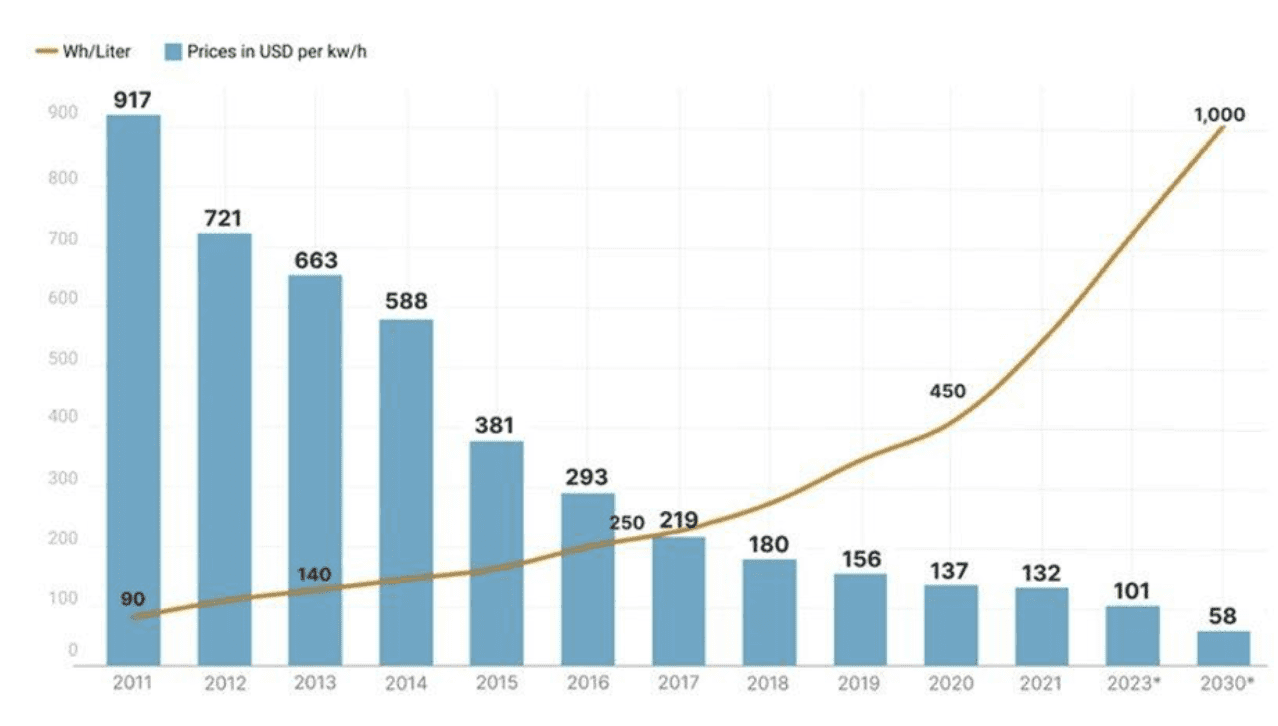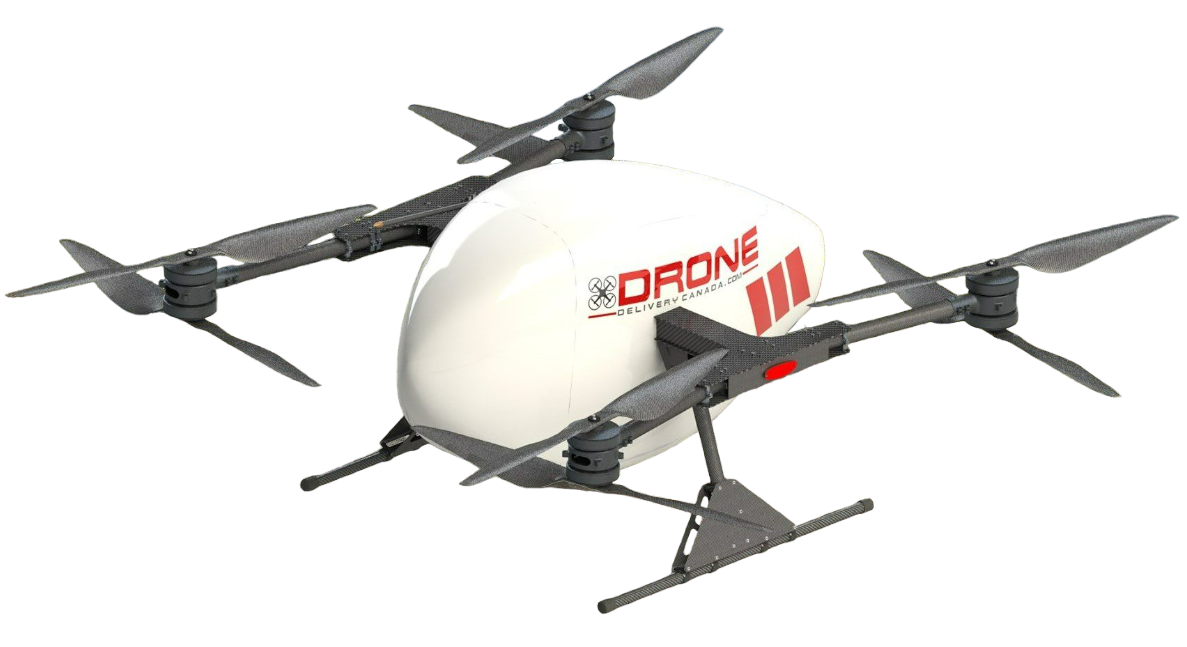Exploring Drone International Delivery
Ever wondered about the future of global logistics? Enter international drone delivery, the nexus where innovation meets efficiency in the world of global trade. With projections suggesting the global drone delivery market could approach a staggering $1.6 billion valuation in 2023 and potentially exceed $4.9 billion by 2030, it's clear this technology is not a mere novelty.
The essence of drone delivery is more than just speed; it's the revolution of international goods transportation. What traditionally took days now crosses borders in hours thanks to unmanned aircraft systems (UAS). Yet, every technology brings its own set of challenges. At Drone Delivery Canada (DDC), our mission is to address these hurdles, bringing unmatched benefits to businesses and their customers alike.
In an age where remote working and digital interactions dominate, the logistics sector isn't far behind in embracing this remote trend. Global remote delivery solutions, especially those powered by drones, are becoming the backbone of modern supply chains, ensuring that distances matter less and efficiency stands paramount.
Join us in this exploration as we unpack the dynamics of international drone delivery, its profound impact on global logistics, potential challenges, and the pioneering solutions setting the stage for a more interconnected tomorrow.
Drone Delivery Technology
In our fast-paced world, where consumers clamor for immediate gratification, the logistics sector has been under mounting pressure to up its game. Enter drones. These high-flying devices are creating tidal waves in the global delivery realm, especially when talking about international shipments. Let's break down their huge impact:
- Live tracking: Modern drones are intelligent devices. Businesses and consumers can now stay in the loop with real-time package tracking, fostering trust and accountability.
- Beating traffic: No roads, no traffic lights, no jams. Drones take to the skies, sidestepping the usual land-based hassles, ensuring the clock isn't running against them.
- Elevated efficiency: Straight as an arrow, drones’ aerial routes translate to direct paths and punctual deliveries. This efficiency isn’t only about speed—it's also about cost savings and better resource management.
- Eliminating borders: Think of a world where national boundaries don't delay your shipments. Drones, adept at navigating varied air regulations, are making this vision a reality, streamlining international deliveries.
The world of international package delivery by drones is no longer confined to futuristic movies or ambitious tech start-ups. It's here, transforming the way businesses and consumers think about shipping, offering a tantalizing glimpse into a world where borders seem virtually non-existent for packages soaring through the sky.
Embracing drones is more than just adopting new tech—it's a pivot to an era where the world feels a little more connected and significantly more efficient.
International Drone Delivery
With the advancement of technology, the concept of delivery has transcended conventional methods. Integrating cutting-edge technology with logistical expertise, the international drone delivery service swiftly and effectively bridges global gaps.
In the intricate maze of the 21st-century global market, the role of international drone delivery is becoming increasingly paramount. International drone delivery now actively drives and enriches the logistics ecosystem.
One of the most evident benefits is the profound impact on cross-border shipments. Where traditional delivery methods often face obstacles with customs, varying regulations, and diverse transportation modes, drones bring a sense of fluidity. They remove many of these barriers, leading to a significant reduction in delivery times.
Shipping internationally means the drone must remain in the air for a long distance. While strategically placed quick charging stages can help with this concern, so too can long-lasting batteries.
Lithium-ion battery prices have been dropping, enhancing drone affordability and functionality. As costs decline, battery densities rise, with an estimated growth of nearly 10% annually. This trend leads to lighter, robust batteries and compact drones with superior lifting abilities, making them ideal for tasks like in-warehouse cargo handling. The following chart demonstrates the costs of lithium-ion battery packs versus battery density.
Source: Desk Research, Roland Berger
This transformation isn’t limited to shipments alone. The world of supply chain management has also witnessed a dynamic shift. The flexibility that drones introduce is truly unparalleled. Whether it's optimizing routes in real-time, effortlessly reaching remote locations, or making multiple stops in quick succession, they have emerged as the vanguard of logistical efficiency.
Yet, it’s not just the businesses that are reaping the benefits. The end consumer's experience is undergoing a renaissance. Gone are the days of grappling with ambiguous delivery windows or bracing for unexpected delays. With drones, deliveries can be scheduled with an accuracy and reliability that was previously unthinkable.
Moreover, the economic efficiency they bring—manifested in reduced operational costs, fewer intermediaries, and decreased infrastructural demands—creates a win-win scenario for everyone involved.
In essence, international drone delivery is redefining boundaries, both literally and figuratively. By altering the very fabric of global logistics, it’s setting a new gold standard for what constitutes "world-class" customer service.

Possibilities with
Drone Delivery

Opportunities and Challenges
The arena of international drone delivery is teeming with opportunities and challenges that intertwine, paving the way for a dynamic future.
First, sustainability is paramount. Drones, while boasting efficiency, have ecological considerations. It's not just about the battery life but the larger environmental imprint. Materials used in drone production, energy consumption during flights, and end-of-life disposal methods all contribute to a drone's sustainability quotient. Companies are innovating by turning to biodegradable components and energy-efficient designs to counteract this.
Then comes the weighty matter of public perception and trust. As drones become an integral part of our skies, it's essential to address the safety and privacy concerns associated with them. Collisions, malfunctions, and unauthorized surveillance are all genuine concerns the public struggles with. Forward-thinking companies like DDC are prioritizing the development of advanced safety mechanisms and AI-driven privacy filters to ensure drones coexist harmoniously with urban environments.
Noise pollution, though less discussed, is another facet. As drone numbers surge, so does the potential for increased noise levels, which can disturb urban and natural habitats. Innovative solutions include noise-cancellation technologies and flight path optimization to minimize disturbances.
However, the path to global drone delivery isn't merely about technological innovations. It's also mired in regulatory complexities. Every country has its drone policy, influenced by factors like national security concerns, cultural nuances, and past precedents.
These policies define the how, where, and when of drone operations. For example, while airspace management in one country might allow for dense drone traffic, another might impose stricter limitations citing privacy or safety risks.
It's essential to emphasize that drone solutions for international deliveries go beyond just the flight. From advanced AI algorithms that choose optimal flight paths to integrated systems that account for varying international regulations, the depth of innovation at play is staggering.
This regulatory maze underscores the importance of a unified global framework. Such a structure would streamline operations, ensure safety standards, and propel the industry forward more cohesively.
Conclusion
Drones are reshaping modern logistics, carving out their niche in unique ways. Throughout this discussion, we've unraveled the transformative essence of international drone delivery, and its immense potential to redefine cross-border shipments, reshape supply chain management, and revolutionize the customer experience.
Admittedly, like all groundbreaking endeavors, it comes with its share of challenges—be it sustainability or public perception. But the narrative is clear: the industry's fervor and evolving international regulations herald the dawn of a new age where the sky is the new highway.
As we edge closer to this impending revolution, DDC remains steadfast, not as mere participants, but as visionaries leading the charge. For businesses and individuals who envision a future seamlessly bridged by the hum of drones, the invitation is open.
Dive deeper with DDC, explore our innovative solutions, and let's collaboratively usher in the next chapter of global delivery systems. The future is airborne; ensure you're a part of it. Contact us today to discover more.

